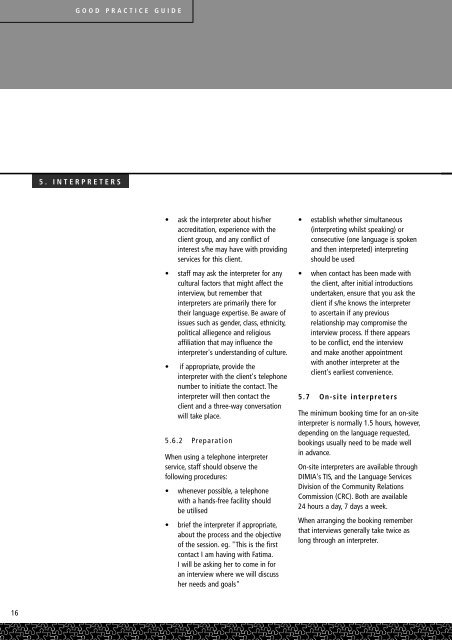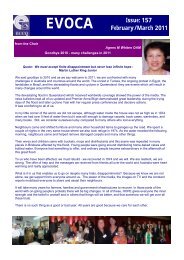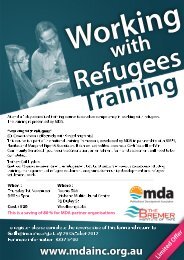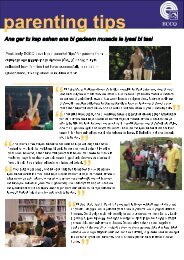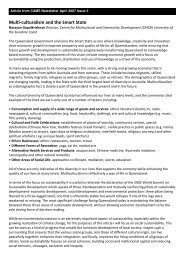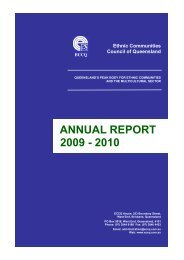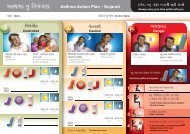Good Practice Guide
CALD Good practice guide
CALD Good practice guide
You also want an ePaper? Increase the reach of your titles
YUMPU automatically turns print PDFs into web optimized ePapers that Google loves.
GOOD PRACTICE GUIDE<br />
5. INTERPRETERS<br />
• ask the interpreter about his/her<br />
accreditation, experience with the<br />
client group, and any conflict of<br />
interest s/he may have with providing<br />
services for this client.<br />
• staff may ask the interpreter for any<br />
cultural factors that might affect the<br />
interview, but remember that<br />
interpreters are primarily there for<br />
their language expertise. Be aware of<br />
issues such as gender, class, ethnicity,<br />
political alliegence and religious<br />
affiliation that may influence the<br />
interpreter's understanding of culture.<br />
• if appropriate, provide the<br />
interpreter with the client's telephone<br />
number to initiate the contact. The<br />
interpreter will then contact the<br />
client and a three-way conversation<br />
will take place.<br />
5.6.2 Preparation<br />
When using a telephone interpreter<br />
service, staff should observe the<br />
following procedures:<br />
• whenever possible, a telephone<br />
with a hands-free facility should<br />
be utilised<br />
• brief the interpreter if appropriate,<br />
about the process and the objective<br />
of the session. eg. "This is the first<br />
contact I am having with Fatima.<br />
I will be asking her to come in for<br />
an interview where we will discuss<br />
her needs and goals"<br />
• establish whether simultaneous<br />
(interpreting whilst speaking) or<br />
consecutive (one language is spoken<br />
and then interpreted) interpreting<br />
should be used<br />
• when contact has been made with<br />
the client, after initial introductions<br />
undertaken, ensure that you ask the<br />
client if s/he knows the interpreter<br />
to ascertain if any previous<br />
relationship may compromise the<br />
interview process. If there appears<br />
to be conflict, end the interview<br />
and make another appointment<br />
with another interpreter at the<br />
client's earliest convenience.<br />
5.7 On-site interpreters<br />
The minimum booking time for an on-site<br />
interpreter is normally 1.5 hours, however,<br />
depending on the language requested,<br />
bookings usually need to be made well<br />
in advance.<br />
On-site interpreters are available through<br />
DIMIA's TIS, and the Language Services<br />
Division of the Community Relations<br />
Commission (CRC). Both are available<br />
24 hours a day, 7 days a week.<br />
When arranging the booking remember<br />
that interviews generally take twice as<br />
long through an interpreter.<br />
16


